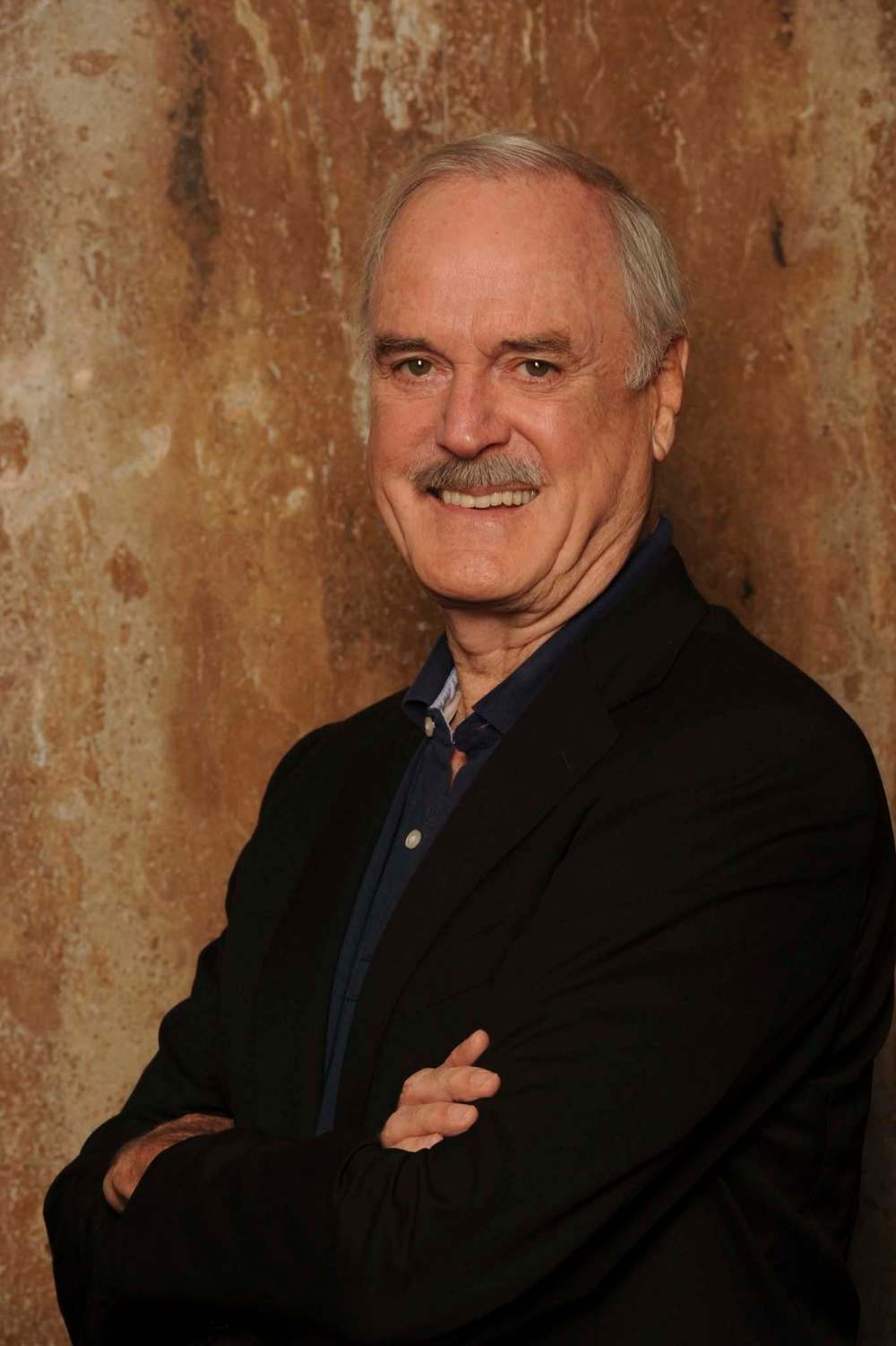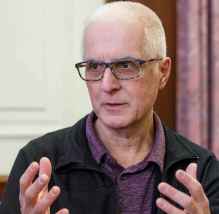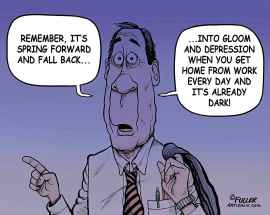Just plain silly Winnipeg gets another chance to see John Cleese create humour out of life's most awkward moments
Read this article for free:
or
Already have an account? Log in here »
To continue reading, please subscribe:
Monthly Digital Subscription
$0 for the first 4 weeks*
- Enjoy unlimited reading on winnipegfreepress.com
- Read the E-Edition, our digital replica newspaper
- Access News Break, our award-winning app
- Play interactive puzzles
*No charge for 4 weeks then price increases to the regular rate of $19.00 plus GST every four weeks. Offer available to new and qualified returning subscribers only. Cancel any time.
Monthly Digital Subscription
$4.75/week*
- Enjoy unlimited reading on winnipegfreepress.com
- Read the E-Edition, our digital replica newspaper
- Access News Break, our award-winning app
- Play interactive puzzles
*Billed as $19 plus GST every four weeks. Cancel any time.
To continue reading, please subscribe:
Add Free Press access to your Brandon Sun subscription for only an additional
$1 for the first 4 weeks*
*Your next subscription payment will increase by $1.00 and you will be charged $16.99 plus GST for four weeks. After four weeks, your payment will increase to $23.99 plus GST every four weeks.
Read unlimited articles for free today:
or
Already have an account? Log in here »
Hey there, time traveller!
This article was published 04/11/2019 (2230 days ago), so information in it may no longer be current.
It’s possible that John Cleese is one of the most quoted people alive. This year marks the 50th anniversary of the formation of the comedy troupe Monty Python; college kids whose parents weren’t alive when the show debuted on the BBC know lines like “This is an ex-parrot” or “Venezuelan Beaver Cheese,” originally voiced by Cleese in two of Python’s most famous sketches.
Event preview
John Cleese: Last Time to See Me Before I Die
● Centennial Concert Hall
● Wednesday, 7:30 p.m.
● Tickets $85.75 to $149.50 at centennialconcerthall.com
In 1975, he and then-wife Connie Booth penned Fawlty Towers; Cleese’s delivery as irascible, put-upon hotelier Basil Fawlty made such phrases as “Don’t mention the war” into comedy classics.
And for the hilarious hat trick, Cleese scored with 1989’s A Fish Called Wanda, an ensemble heist movie featuring his Python pal Michael Palin and for which he was nominated for a best original screenplay Oscar.
Cleese, who turned 80 on Oct. 27, recently moved to the Caribbean island of Nevis, an idyllic getaway for the rich and famous, where he lives with his fourth wife, Jennifer Wade, 47.
On Wednesday, he’s bringing his show Last Time to See Me Before I Die to the Centennial Concert Hall, which he’s been peforming all over the world since 2013 (the title seems less cheeky with every passing year). In advance of the show, he chatted with the Free Press about death, aging, the afterlife and other funny things.
John Cleese: You’re talking very fast — are you anxious?
Jill Wilson: Yes, I admit I am a little bit.
John Cleese: (Laughs an extremely Cleesian laugh) I’m very nice, I promise. I don’t bite.
Jill Wilson: Whew! So what can you tell me about the show you’re debuting in Winnipeg? How is it different from Why There Is No Hope, which was more lecture than comedy show?
John Cleese: It’s basically just silly — me being as silly as I can, and talking about being silly and then a little bit about being naughty. I talk about what offends people and what political correctness is all about. And then I make lots and lots of jokes about death and people leave feeling rather cheerful. I can’t explain it, but that’s what happens.
Jill Wilson: You joke about death, but at almost 80, you must think about your mortality a fair bit. Does it scare you?
John Cleese: I don’t think I am so afraid. I think in the old days, one was afraid because there wasn’t much the medics could do about the pain. Now I think they can do a lot. I’m sure it’s a bit alarming when you realize that you’re dying, but I’m one of those very strange people who believes in an afterlife. Not in a religious sense — I don’t think it has anything to do with religion — but I think something happens after we die, and I’m fascinated by that.
Most people say, “Well, it’s not possible,” to which you can only say, “Most of quantum physics isn’t possible, but it still happens.” All it means is that we don’t have theory to explain it. I’ve looked at the evidence and I’m quite sure that for some people, there is an afterlife. I think while I lie there, I’ll be probably a bit scared but also thinking “What happens next?”
In the show, I say: If you’re up there with God and he asks you “Do you want to have a life down on Earth but you have to die at the end of it?” I think most people would give it a whirl.
Jill Wilson: In a pretty concrete sense, though, you — your work — is an afterlife, in a way. You will live on for years and years.
John Cleese: Oh, what a nice thing to say. Yes, that’s true, but it’s never mattered much to me. When I was about 18, I asked the senior master what poem I should learn and he said “Gray’s Elegy” (Thomas Gray’s Elegy Written in a Country Churchyard) and it’s fabulous. You know, “the paths of glory lead but to the grave.” Everyone goes, “Ooh, it’s gloomy,” but it’s not. Don’t mess around with glory and getting titles and becoming rich and powerful because that doesn’t matter in the end. What matters is having a satisfying life.
Jill Wilson: It seems that young angry comedians are called “firebrands” and older angry comedians are called “curmudgeons.” You’ve always had an angry edge — have reactions to your comedy changed as you’ve aged?
John Cleese: Oh, that’s very shrewd, Jill — I like you. That’s a great observation and it’s absolutely right. But you know, the older people who come to my shows are so steeped in Python, and it’s very touching when they say to me, with a tear in their eye, “Thanks for making me laugh all these years.” But young people are a bit dogmatic… If you’re young and angry, it’s considered kind of commendable, but if you’re old and really grumpy about all the ridiculous things going on in the world, you’re considered a curmedgeon. Listen to what’s being said and don’t concern yourself with the age of the person saying it.
Somebody criticized me recently and referred to Monty Python and its 50-year-old jokes. Nobody refers to William Shakespeare and his 400-year-old plays.
Jill Wilson: On that topic, Life of Brian turn 40 this year…
John Cleese: It is my favourite, and the lucky thing about both of our films (Life of Brian and Monty Python and the Holy Grail) that they were set in historical periods so neither of them ever ages. We didn’t realize that at the time.
Jill Wilson: But the content is still relevant today. Did you imagine that was going to happen?
John Cleese: Oh no. No, absolutely not. And particularly the stuff, the early scene at the amphitheatre when Graham is trying to sell wolf nipple chips. And there’s Eric Idle saying he wants the right to have a baby. He knows he can’t, but he wants the right.
Jill Wilson: You’ve said you enjoy the writing process more than the performing end of things. Why is that?
John Cleese: It’s a feeling of having achieved something. If at the end of the day, I’ve got a couple of pages filled with, in my case, pencil, because I write in pencil in exercise books, I have sense I’ve done something important. If I do a day’s acting, I don’t have the same sense of satisfaction.
Next year, I’m looking forward to writing the next volume of my autobiography, and then adapting Life of Brian into a stage show. And I also have a couple of silly ideas, like Python Abbey. I think it’s time we got a little bit more fun out of Upper Class Twits. I think Julian Fellowes isn’t as funny as he could be.
jill.wilson@freepress.mb.ca
Twitter: @dedaumier

Jill Wilson writes about culture and the culinary arts for the Arts & Life section.
Our newsroom depends on a growing audience of readers to power our journalism. If you are not a paid reader, please consider becoming a subscriber.
Our newsroom depends on its audience of readers to power our journalism. Thank you for your support.










